The Flowers of War
 for strong violence including a sexual assault, disturbing images, and brief strong language.
for strong violence including a sexual assault, disturbing images, and brief strong language.
Reviewed by: David Criswell, Ph.D.
CONTRIBUTOR
| Moral Rating: | Extremely Offensive |
| Moviemaking Quality: |
|
| Primary Audience: | Adults |
| Genre: | History War Drama Adaptation |
| Length: | 2 hr. 39 min. |
| Year of Release: | 2011 |
| USA Release: |
December 21, 2011 (NYC) January 20, 2012 (limited) DVD: July 10, 2012 |
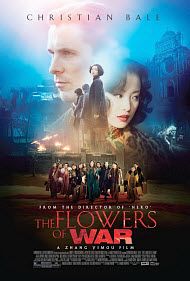

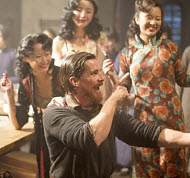
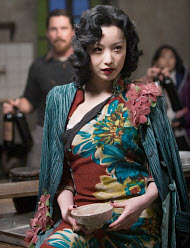
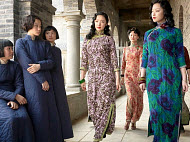
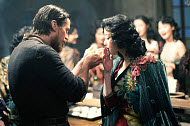
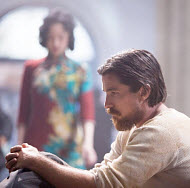
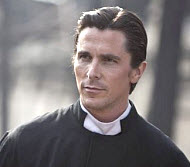
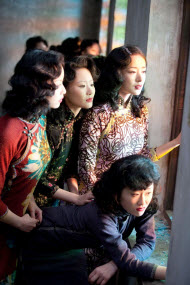
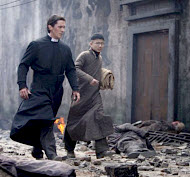
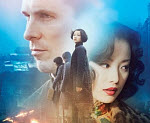
sin and the Bible
war in the Bible
What is the Biblical perspective on war? Answer
What about the issue of suffering? Doesn’t this prove that there is no God and that we are on our own? Answer
Why does God allow innocent people to suffer? Answer
Does God feel our pain? Answer
ORIGIN OF BAD—How did bad things come about? Answer
Did God make the world the way it is now? What kind of world would you create? Answer
FILM VIOLENCE—How does viewing violence in movies affect families? Answer
| Featuring |
|---|
|
Christian Bale … John Miller Paul Schneider … Terry Ni Ni … Yu Mo Xinyi Zhang … Shujuan Meng See all » |
| Director |
|
Yimou Zhang |
| Producer |
|
Beijing New Picture Film Co. EDKO Film See all » |
| Distributor |
| Row 1 Entertainment, Wrekin Hill Entertainment |

“Flowers of War” is a Chinese drama based against the backdrop of the Rape of Nanking. It stars Christian Bale, but is predominantly in Chinese and Japanese with subtitles. Christian Bale plays a mortician who pretends to be a priest in hopes of rescuing thirteen young girls and twelve prostitutes who are hiding in a church. It was made for $90 million dollars, which is the most expensive Chinese film ever made. Naturally, it also fell under the Chinese government’s watchful eye and censorship. The result is a film of a very mixed message and of great irony.
For those who are not familiar with the Rape of Nanking, I will offer a brief history. Imperial Japan, before the bombing of Pearl Harbor, was already at war with its neighbors in an attempt to seize all of the Pacific. Nanking was the first city in China to fall to the Imperial Army, and the emperor had hoped to make it an example that would send fear into the minds of all Chinese, so that they would not resist Japanese occupation. Instead, the atrocities committed there rallied all China, who decided they would rather die than submit to the cruelties inflicted upon Nanking. The low estimate of dead is 200,000, but the annals of history record not the sheer numbers, so much as the heinous crimes and butchery with which the hundreds of thousands died. The most common was systematic rape and mutilation of women, including children and the elderly. Houses were systematically searched, and women of all ages subjected to gang rapes before being mutilated in ways not fit to describe on a Christian Web site. Tens of thousands, if not a hundred thousand, women died in such a cruel manner as to earn the “Rape of Nanking” a place in the annals of history, as among the greatest human rights travesties. This is the backdrop of the fictional story of “Flowers of War,” and this should serve as a warning to potential viewers of what awaits them.
The film is packed with violence and gore. Brains are shot out, blood splatters are constant, a woman is stabbed in the chest after being raped causing blood to gush out, as if he hit an artery. These are but a few small examples. The violence could almost be compared to “Saving Private Ryan.” The greater portion of the film deals with the subject of rape. Although there is only one rather graphic rape scene, there are countless attempted rapes and scenes where rape is about to take place, but we do not see most of the crime on screen. There is also some foul language including the hero who repeatedly calls one of the church workers a “little s—-.” Alcoholism and prostitution are also prominent in the film. This is just a small sampling, so please be aware that this film is not, under any circumstances, for young children or teenagers.
The fictional story revolves around a drunken mortician, played by Christian Bale, who finds himself on Catholic church grounds when Nanking falls to Japan. The priest was killed by a bomb, and there are thirteen young girls in the convent. Additionally, twelve prostitutes seek refuge in the church, because they know that Japan does not wish the West to intervene in the war, and they hope that the Japanese will not violate the walls of sanctuary. Eventually, the Japanese do enter and attempt to the rape the young convent girls, killing several. Christian Bale poses as a priest to attempt to hold the soldiers back, but to no avail. The attack is halted only by a Chinese sniper. Soon afterward, the Japanese commander appears and orders the young girls to appear at a victory banquet. Bale knows that the young girls will be subjected to brutal gang rape and torture, and attempts to find a way to help the women escape with the help of the hidden prostitutes.
Now, in order to review this film, it is necessary to give spoilers. If the reader does not wish to see spoilers, then please skip to the bottom, but be aware that I cannot recommend this movie for many reasons.
The movie is meant to show bravery, humanity, and compassion amid the evil. The prostitutes in the film eventually agree to pose as the young convent girls, in order to spare them the cruelties of the soldiers. While the prostitutes are keeping the men busy, Bale escapes with the young girls. Thus, the story is meant to reflect the nobility of sacrifice, but the sacrifice does not feel as noble as it should, because the filmmakers made this film devoid of religion, spirituality and God, despite being set in a Catholic Church! This is not really hard to understand, since the Communist government brutally suppresses religion and maintains tight censorship over its films. In fact, it is no small irony that when actor Christian Bale attempted to visit the blind Chinese dissident Chen Guangcheng (who made news a few weeks ago when he escaped to the USA, in the wake of exposing abuses in official family-planning policy, often involving violence and forced abortions) while he was in China, he was greeted by well armed and rough Chinese military personnel, who ordered him to turn around and leave. Thus, the very government which suppresses religion could not allow any spirituality in a film taking place in a church! The result was that Bale’s character only pretends to be a priest, but is, in reality, a drunkard bum who tried to bed one of the prostitutes in the early stages of the film. It is only later that he has a change of heart, but we know that in real life the true change of heart is that guided by God. The word repentance literally means to “turn away” or have a “change of heart.” Without true change, there can be no repentance, and without Jesus there can be no true change. This was one of the problems with the film. The deed of the prostitutes was noble, and yet done void of any desire to change or turn from their lifestyle. They did not want the young convent girls to suffer the same fate as themselves (which implies they know their life is sad), but they approach this as if it is another job. Consequently, the “pay off” for the film falls flat. I never felt that anyone was truly any different than they were in the first reel of the film, except perhaps Bale himself, although his transformation too seems void of any real motivation.
In short, “Flowers of War” offers two hours of violence, rape, attempted rape, drunken abuses, and selfish characters, followed by thirty minutes of pseudo-redemption void of any spiritual motivation. As a result, the final thirty minutes fall flat, leaving two hours of gore, sadism, and cruelty. By the end of the film, I did not feel redemption or even melancholy, but rather a sickly feeling in my stomach. The movie proves more than a little ironic, considering that Japan is now a free democratic republic (thanks to the USA’s “interventionists” policies), while China is a repressive Communist state whose soldiers threatened Christian Bale for attempting to visit a blind activist! Ultimately, the film only shows the depravity and sin of men when left to themselves.
Violence: Extreme / Profanity: Moderate / Sex/Nudity: Extreme
See list of Relevant Issues—questions-and-answers.


PLEASE share your observations and insights to be posted here.